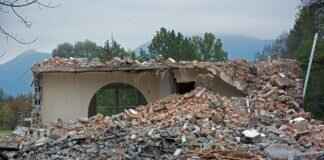Residents of Los Angeles are bracing themselves for an imminent hike in trash fees as the city grapples with a staggering $1-billion budget shortfall. In a bid to navigate these challenging financial waters, city officials have proposed a plan to incrementally increase trash pickup fees over the next five years, starting with a substantial surge.
The proposed fee hike, which has gained the endorsement of two City Council committees, targets an estimated 740,000 customers residing in single-family homes, duplexes, and smaller apartment buildings. These customers rely on the city’s trash collection services and use black, blue, and green bins that are emptied weekly by municipal workers.
For single-family homes and duplexes, the monthly trash fee would skyrocket by 54% in the upcoming budget year, reaching $55.95 from the current $36.32. Similarly, the monthly fee for smaller apartment buildings with three or four units would surge to $55.95 from $24.33. This proposal is set to undergo a vote by the full City Council on Friday, pending approval.
As the city grapples with the monumental budget deficit, discussions are also underway regarding the potential elimination of thousands of city jobs. Mayor Karen Bass is slated to unveil her budget plan aimed at bridging the financial gap on April 21. The pressing need for revenue generation has prompted calls from council members like Katy Yaroslavsky and Marqueece Harris-Dawson to explore new avenues for balancing the city’s finances.
Officials from the city’s Bureau of Sanitation have highlighted that the existing trash fees have failed to cover the actual costs of refuse collection, necessitating the reliance on the general fund to make up the shortfall. Failure to raise the rates would force the general fund to absorb over $200 million in costs in the upcoming fiscal year, exacerbating the city’s financial woes.
During a joint committee meeting, Councilmember Eunisses Hernandez emphasized the critical importance of raising rates to support city jobs, echoing concerns raised by Yaroslavsky about the implications of underpricing trash collection services in the face of a significant deficit. The urgency of this fee increase was underscored by Councilmember Adrin Nazarian, who cautioned against further delays in rate adjustments.
The proposed rate hikes are expected to generate over $200 million annually, with the initial increase estimated to bring in an additional $90 million in the upcoming fiscal year. City Administrative Officer Matt Szabo emphasized the need for these adjustments to align with the city’s financial objectives.
If the proposed rates are implemented by October 1, the sanitation bureau stands to gain an extra $90 million in the coming fiscal year. However, if the rate adjustments are pushed to January 1, the additional revenue is projected to be $49 million. The plan outlines a gradual increase in trash fees through 2029, culminating in a monthly fee of $65.93 for single-family homes and smaller apartment buildings.
The rationale behind these fee hikes lies in the sanitation bureau’s need to offset rising costs associated with equipment, salaries, and compliance with California Senate Bill 1383, which mandates the diversion of organic waste from landfills. The increasing expenses tied to the implementation of this legislation have added pressure on the bureau’s budget, necessitating the fee adjustments to ensure operational sustainability.
This move to raise trash fees marks a significant shift from the last fee adjustment that took place 17 years ago, under the tenure of former Mayor Antonio Villaraigosa. The decision to triple customers’ bills over a three-year period back then was driven by the need to bolster public safety initiatives and navigate a budget crisis amid the global recession of 2008.
However, concerns have been raised about the timing of this fee proposal and the lack of public engagement in the decision-making process. Critics like Jack Humphreville from the Neighborhood Council Budget Advocates have pointed out the rushed nature of the proceedings, citing inadequate outreach and transparency in the public consultation process.
As residents gear up for these impending changes, the city’s efforts to address its financial challenges underscore the delicate balance between fiscal responsibility and the need to sustain essential services. The fate of the proposed trash fee increases now rests in the hands of the City Council, as they deliberate on the best path forward to secure the city’s economic future.














